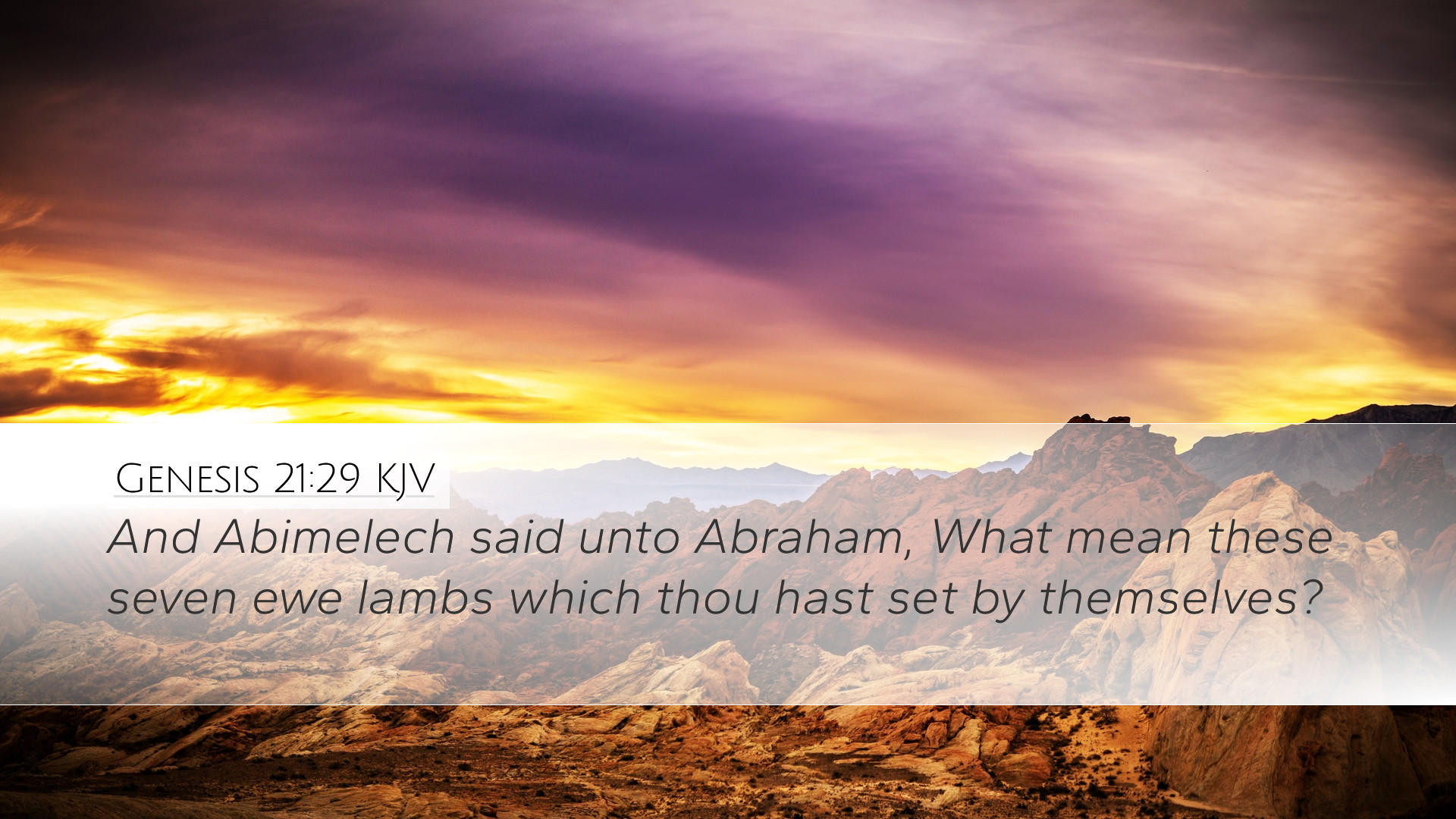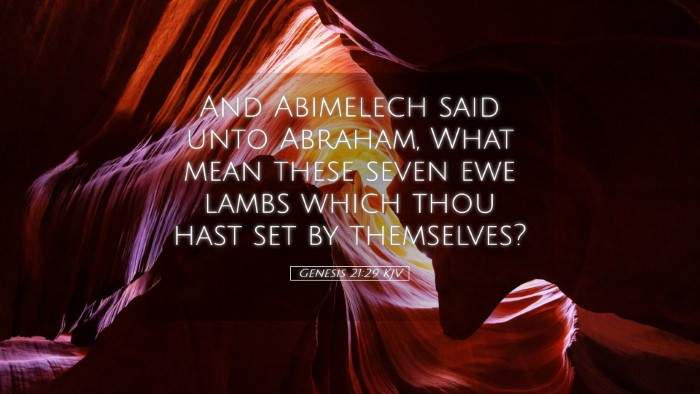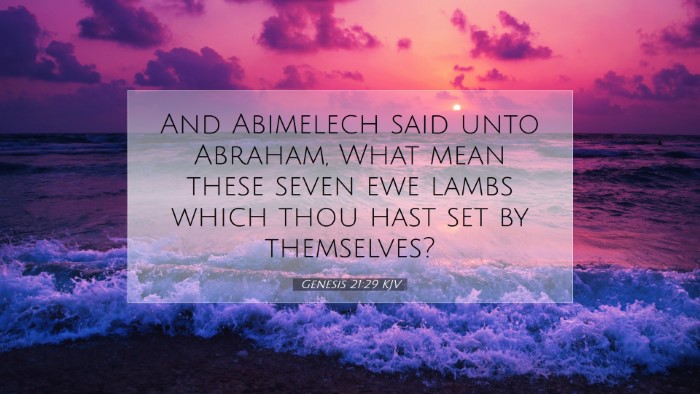Commentary on Genesis 21:29
Genesis 21:29 states: "And Abimelech said unto Abraham, What seest thou that thou hast done this?" This verse is part of a broader narrative involving Abraham and the Philistine king Abimelech. It invites deep theological and practical reflections that are crucial for pastors, students, theologians, and Bible scholars alike.
Historical Context
The context of this verse is significant. Abraham had settled in the land of Gerar, where Abimelech ruled. The exchange between Abraham and Abimelech highlights important themes of trust, identity, and ethical behavior in relationships—particularly when dealing with those outside the faith community.
Abimelech's Inquiry
Abimelech’s question to Abraham is crucial: "What seest thou that thou hast done this?" This reflects the king's confusion and concern regarding the actions of Abraham, particularly when Abraham misrepresented Sarah as his sister, which almost led to grave consequences for Abimelech’s house.
Theological Insights
This verse illustrates several key theological themes:
- Human Fallibility: Abraham, a key patriarch, exhibits distrust—acting in a way that puts his wife and Abimelech at risk. This highlights the fallen nature of humanity, making it clear that even the most faithful can falter.
- God’s Sovereignty: Despite Abraham’s failings, God protects both Abraham and Abimelech. This reflects God’s control over the unfolding narrative, assuring readers that divine providence supersedes human error.
- Interpersonal Ethics: The interaction raises questions about ethics in relationships and the implications of truth-telling. Abimelech’s integrity stands in contrast to Abraham’s deception, prompting reflection on how believers are to conduct themselves among non-believers.
Commentary Breakdown
Matthew Henry’s Insights
Matthew Henry, in his commentary, emphasizes the moral lessons that can be drawn from this encounter. He notes that Abraham’s fears led him to act dishonestly, which is often the case for believers when they do not trust in God’s protection. Henry suggests that this shows the need for humility and recognition of our own weaknesses, as even the chosen patriarch struggles to exhibit faith in challenging circumstances.
Albert Barnes’ Reflections
Albert Barnes, on the other hand, focuses on Abimelech’s role in this narrative. Barnes points out that the pagan king demonstrates a level of integrity that prompts them to act justly, even in a situation where he was wronged. He observes how Abimelech’s response can serve as a model for believers, providing a contrast to how Christians are called to live by moral and ethical standards that reflect God’s character.
Adam Clarke’s Observations
Adam Clarke expands on the cultural implications of this question posed by Abimelech. He notes that in the ancient Near Eastern context, kings were expected to act with wisdom and justice, and Abimelech’s inquiry reflects his role as a leader who seeks to understand and rectify the situation. Clarke suggests that this event encourages Christians to seek reconciliation and understanding, especially when misunderstandings arise among different cultures or beliefs.
Practical Applications
As we reflect on Genesis 21:29, several practical applications emerge:
- Trust in Divine Protection: Just as Abraham struggled with faith, we too must learn to rely on God’s promises, especially in difficult times.
- Integrity in Interactions: Abimelech’s example challenges Christians to uphold honesty and integrity in all dealings, especially with non-believers.
- Seeking Resolution: The need for communication and understanding in resolving conflicts is essential. We should strive to be as seeking peace like Abimelech, rather than allowing misunderstandings to fester.
Conclusion
Genesis 21:29 serves not only as a pivotal moment in the life of Abraham but also as a rich source of theological, ethical, and practical insights that resonate through time. Engaging with the questions posed by Abimelech leads to a deeper understanding of human nature and the approach believers should take in their relationships both within and outside the faith community.


